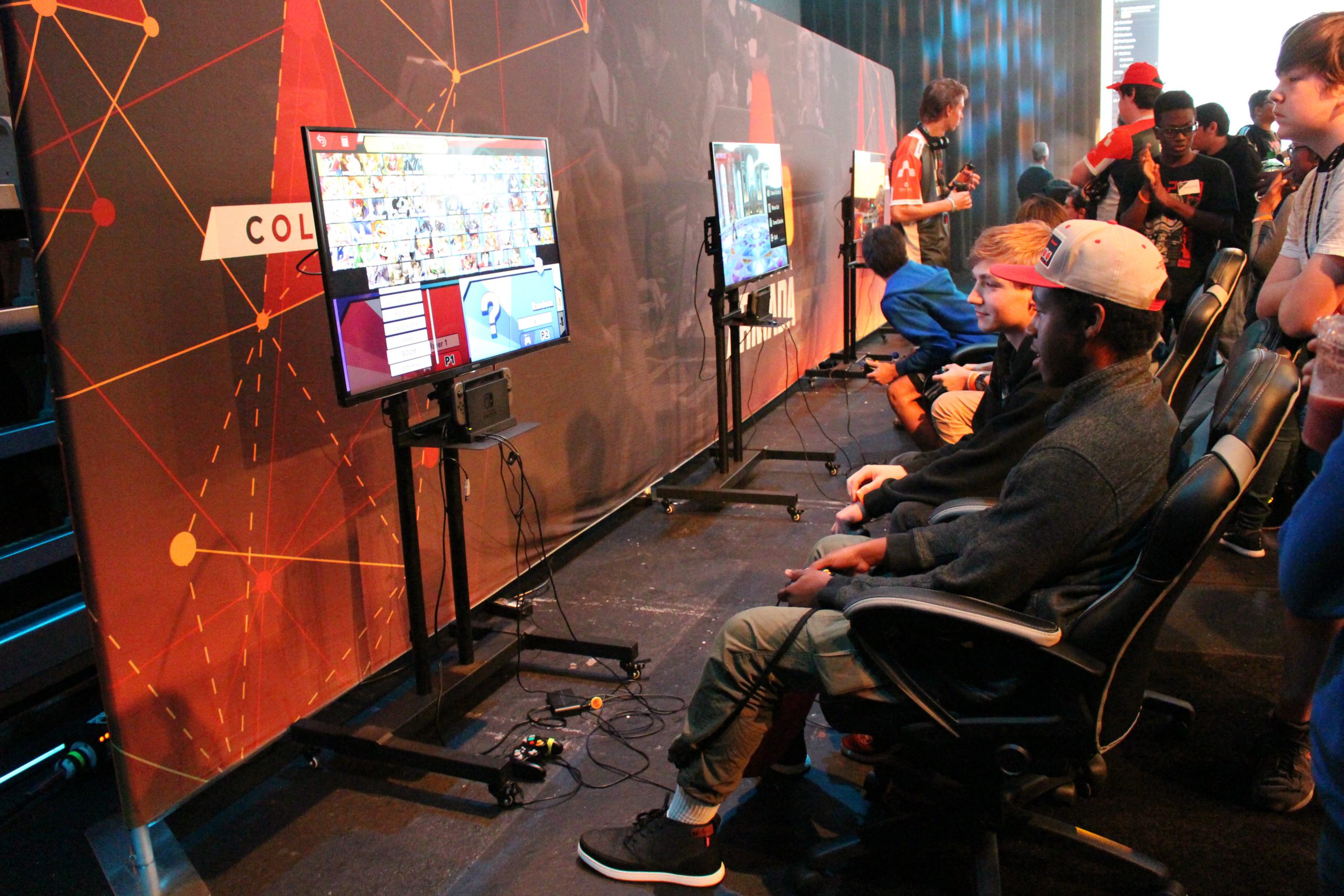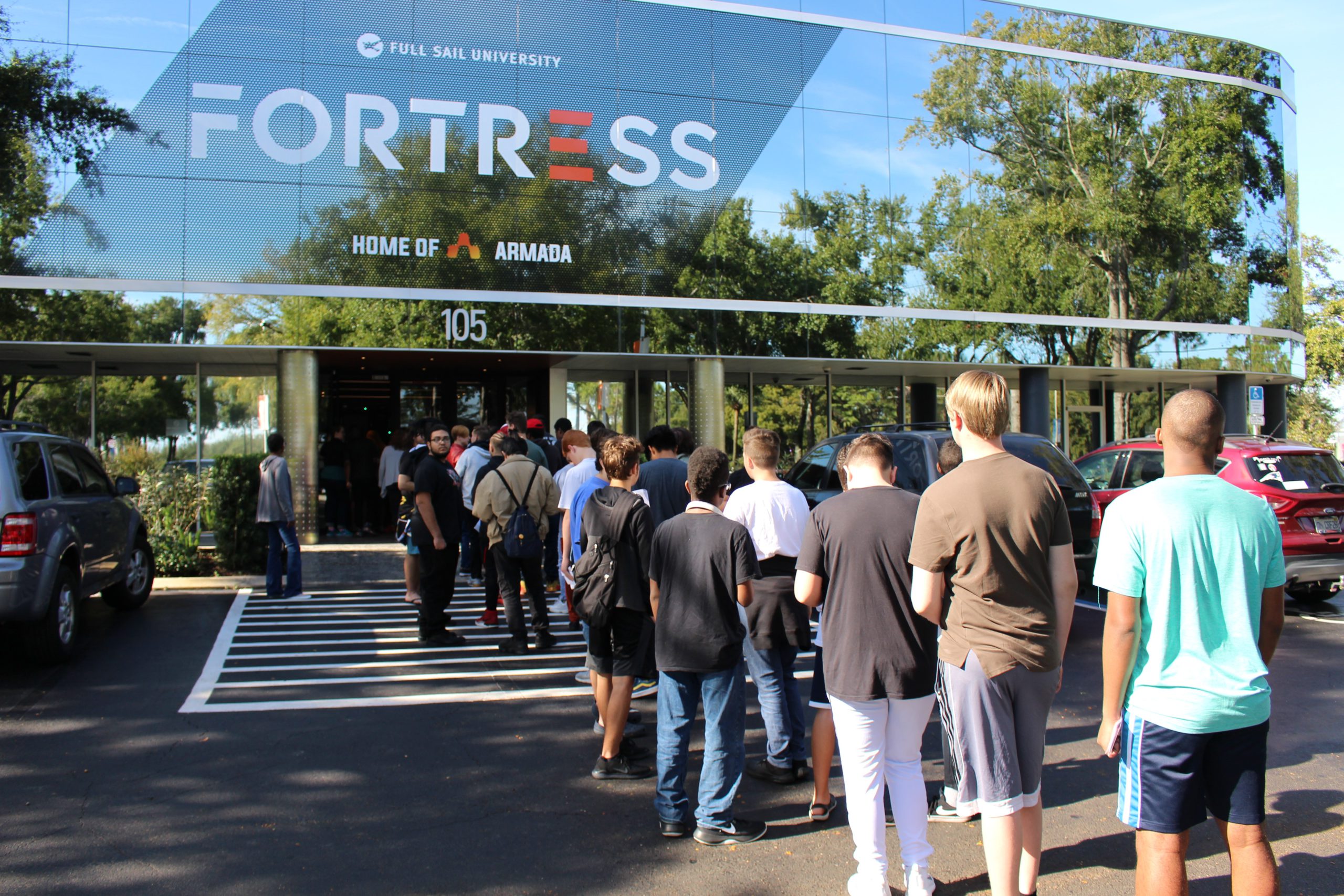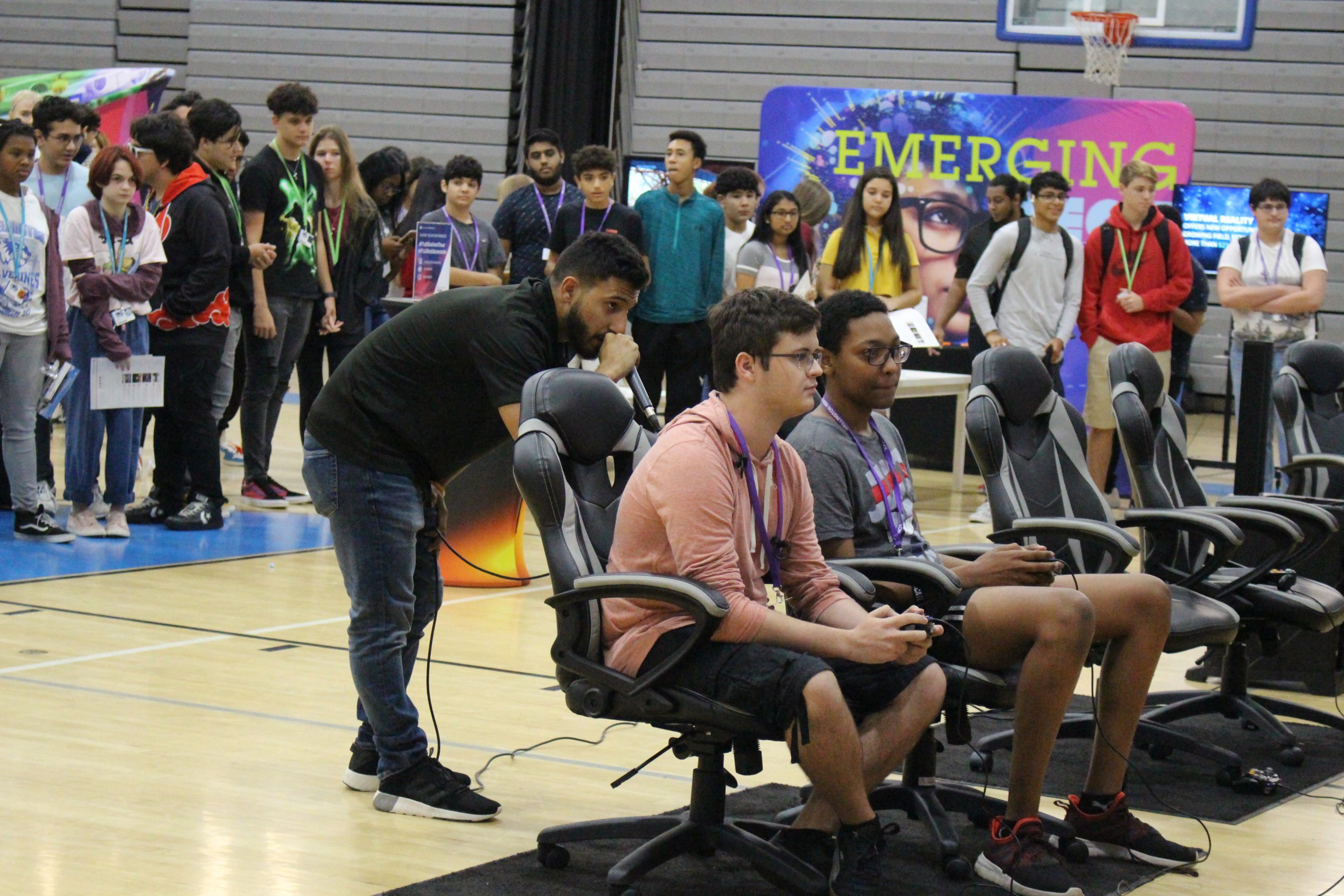At the corner of Forysth Road and University Drive, a hearty drive north from Orlando’s theme parks and the chaos of I-Drive, lie a couple of nondescript, long, mirrored glass buildings. Plenty of parking. An abundance of trees. Their leaves shield a few small signs that let you know where you are: Full Sail University.
If you’re speeding through the suburb of Winter Park, you might miss it, especially if your eyes catch a glimpse of the Chick-fil-A across the street. But on a recent Saturday morning, it was hard to ignore the line snaking from the doors at the north end of its second building. Kids, parents, teachers, school technologists, all waiting nervously in the warm November sun. All waiting to get their first glimpse of The Fortress, the largest collegiate esports campus arena in the country.
In May, the 11,200-square-foot $6 million Fortress was officially unveiled, helping to put this diminutive-but-tech-strong campus on the gaming map. Full Sail, noted for its recording arts and film production work – and yes, esports – already has hosted a number of events there. But its most recent one, this High School Invitational for students across Florida, might have been its most ambitious and its most successful.
That long line of people – more than 520 strong – converged on Full Sail for a final Super Smash Brothers tournament that pitted 174 competitors against each other under the bright lights and big screens of The Fortress. Three winners received scholarships. All of them in some way came away victorious, getting the chance to be spotlighted in a big arena with families cheering them on.
“I am still in awe of what took place on Saturday,” said Andrew Duncan, assistant director of outreach at Full Sail. “It was an incredible experience that I hope will leave a lasting memory for all who were in attendance.
“There was a moment during the tournament when a teacher took me aside to share the positive impact this experience has made to one of her more reserved students. She was amazed at how much her student opened up after qualifying for our invitational. The student even designed esports T-shirts for her entire team. Hearing stories like these make it all worth it and solidifies the importance of providing esports opportunities to high school students.”
That student, Brooke Shainman of Jupiter High School in Palm Beach County, a couple hours south of Orlando, took second place overall and won a $5,000 scholarship to Full Sail along with a 3D printed medal. Local gamer Sam Delgado of Edgewater High School in Orlando took first place, earning a $10,000 scholarship, a trophy, a 3D medal and a championship banner to hang in his school’s gymnasium. Judah Harvey of Crooms Academy of Information Technology in Sanford, a half-hour north, took third place and also earned a $5,000 scholarship and 3D medal.
The event was the culmination of a long-planned creative vision, backed by savvy marketing and, of course, the will of students, parents and faculty to get involved.
The inspiration
The idea for the tournament was born as The Fortress was being built.
Duncan and his team dreamed up a multi-site competition and learning environment as part of an outreach to students. The mission: Full Sail team members would go to a variety of high schools throughout The Sunshine State, hitting the big population areas of Jacksonville, Tampa, Central Florida and South Florida, spreading the vision of the university while hosting TechFests at each school. Beyond the games, they wanted to show students career paths through interactive stations that highlighted animation, 3D arts, spatial computing, game design, augmented and virtual reality and emerging technologies.
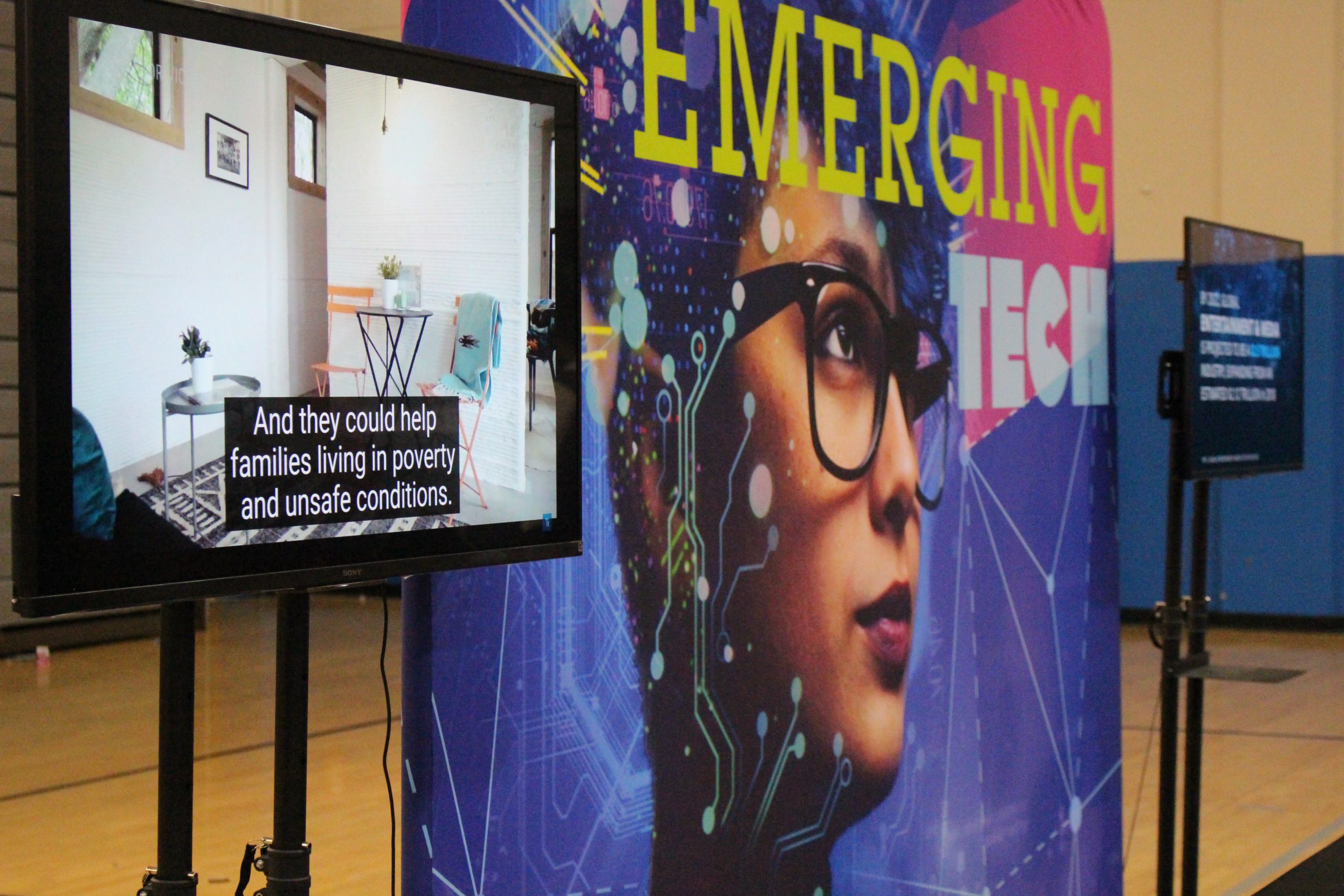 “I started thinking along the lines of, ‘how can we get high school students involved?’ ” Duncan said. “So, we decided to combine those two worlds (tech and esports) and plant the seeds with the high school students and let them know about it.
“I started thinking along the lines of, ‘how can we get high school students involved?’ ” Duncan said. “So, we decided to combine those two worlds (tech and esports) and plant the seeds with the high school students and let them know about it.
“What we wanted to do was reinforce the importance of STEAM classes in high school. If you take those math classes seriously, that could lead to potential careers in the gaming industry – in augmented reality, virtual reality, simulation and so on – and then end up maybe working for companies like Google or SpaceX and so on.”
Duncan and team members chose 17 schools, essentially four or five from each region, trying to get a diverse cross-section of student gamers to compete.
“Some of the schools already had esports clubs available, which was incredible; some of the schools, it’s very new to them,” Duncan said. “We wanted to make sure that we reached out to a vast variety of schools, not only private schools, but public schools, charter and magnet schools, Title I schools. We wanted to give everyone an opportunity to participate in this. If you’re serious about your dream, we’ll take your dream seriously.”
Opportunity knocks
Full Sail members trekked from North Florida all the way to Miami-Dade County, where esports has a strong foothold in high schools. The visits finished the final week before the big day at The Fortress.
Two of its final stops were in Palm Beach County, which boasts 1.5 million residents, but has done very little in the esports space at the middle and high school level. According to school district officials, however, that’s likely to change. Understanding the benefits esports can provide beyond just game play, they are already testing the waters to give kids another outlet in school to cement their futures.
“The big goal is to engage the students who are typically not engaged with school,” said John Shoemaker, Educational Technology Strategist for the School District of Palm Beach County. “We were awarded a grant from the Pew Foundation to create three teams at three of our Title I schools. We also have three more high schools and middle schools we would like to build teams at. The goal would be that kids can go into middle school and start learning the basics and then look to high school and actually participate in a real team and then be able to get scholarships to college.”
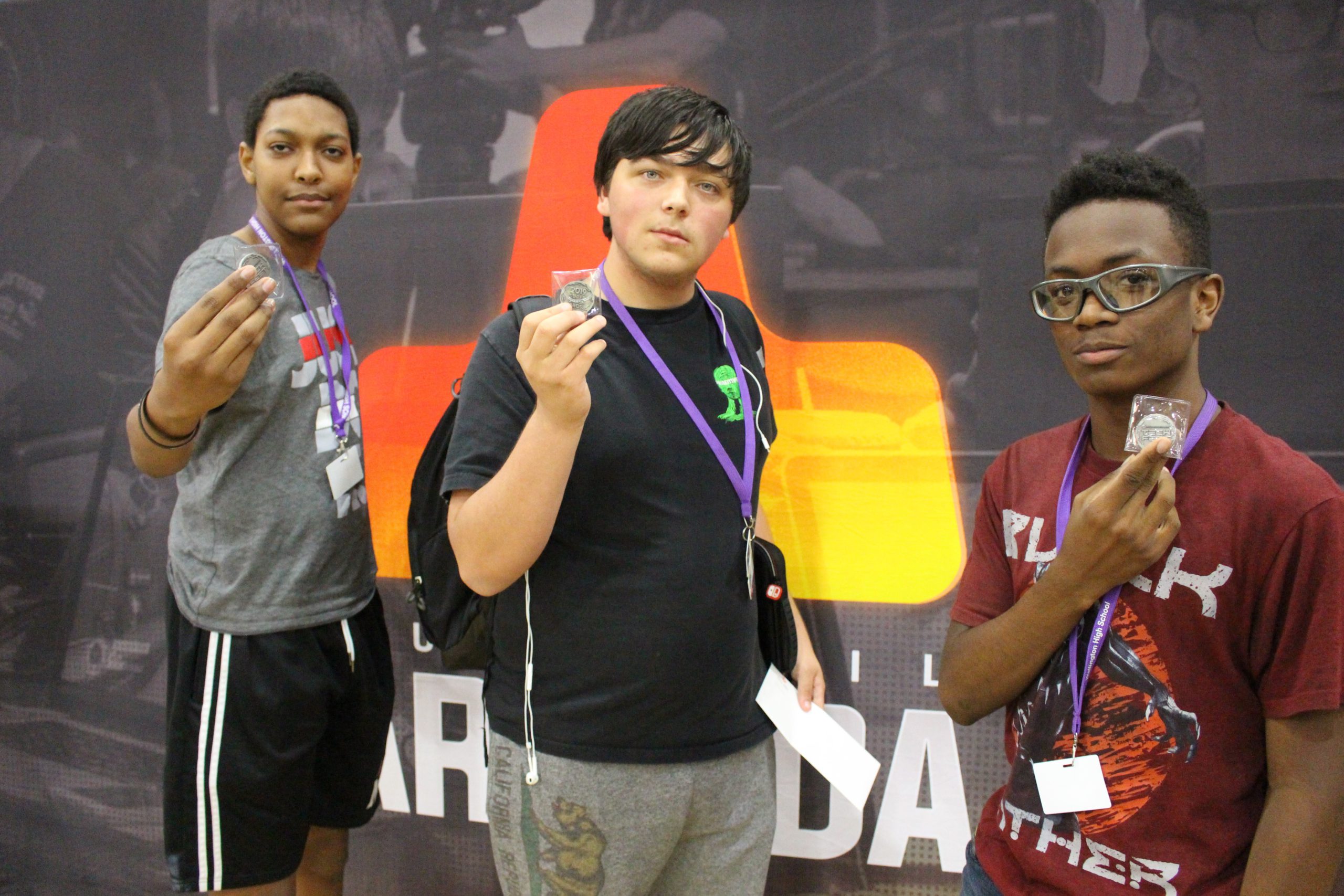 Shoemaker referenced the North America Scholastic Esports Federation’s (NASEF) Trojan Horse notion, that esports can be the gateway to much bigger and better things for interested students.
Shoemaker referenced the North America Scholastic Esports Federation’s (NASEF) Trojan Horse notion, that esports can be the gateway to much bigger and better things for interested students.
“I really love that analogy because it’s true,” he said. “It’s not just a video game club. It’s really academically focused using this as the catalyst to let them see that they can be engaged in their school, especially those students who are disengaged and absent a lot and just don’t want to be here. Yet, they’re going home and doing the very thing that we’re trying to build here. So, the kids, especially in our CTE classes that are interested in this field, can actually see how they can make this a career for their lifetime. Each of the different booths were really hands-on, which I like.”
One of Palm Beach’s competitors, Shainman, proved that students can come from any program, startup or established, and find success in a county that is just scratching the surface with esports on the scholastic level. Her second-place finish and the positive vibes of those competing were apparent at both Jupiter and Wellington, where high-fives, fist bumps and shouts of “GG (for good game)” were ever-present.
“Just the whole diversity of this [tournament] is great any student can actually win this!” Shoemaker said. “A lot of times it’s the shy, quiet student that wins, someone who barely says a word, but the students are cheering for them. They get to see that what they do can be validated, that this is something that is a reality and not just on the cutting edge anymore.”
Duncan added: “They get very excited when they come in, especially when they see the Smash Bros. portion of the event. But I would have to say, my favorite part is when students qualify; maybe they haven’t had an opportunity to play in any sporting field before and now they have what it is that they enjoy the most and they’re getting a chance to compete against other high schools. To see their excitement, they are literally shaking when they’ve won and qualified. They’re so excited for the opportunity.”
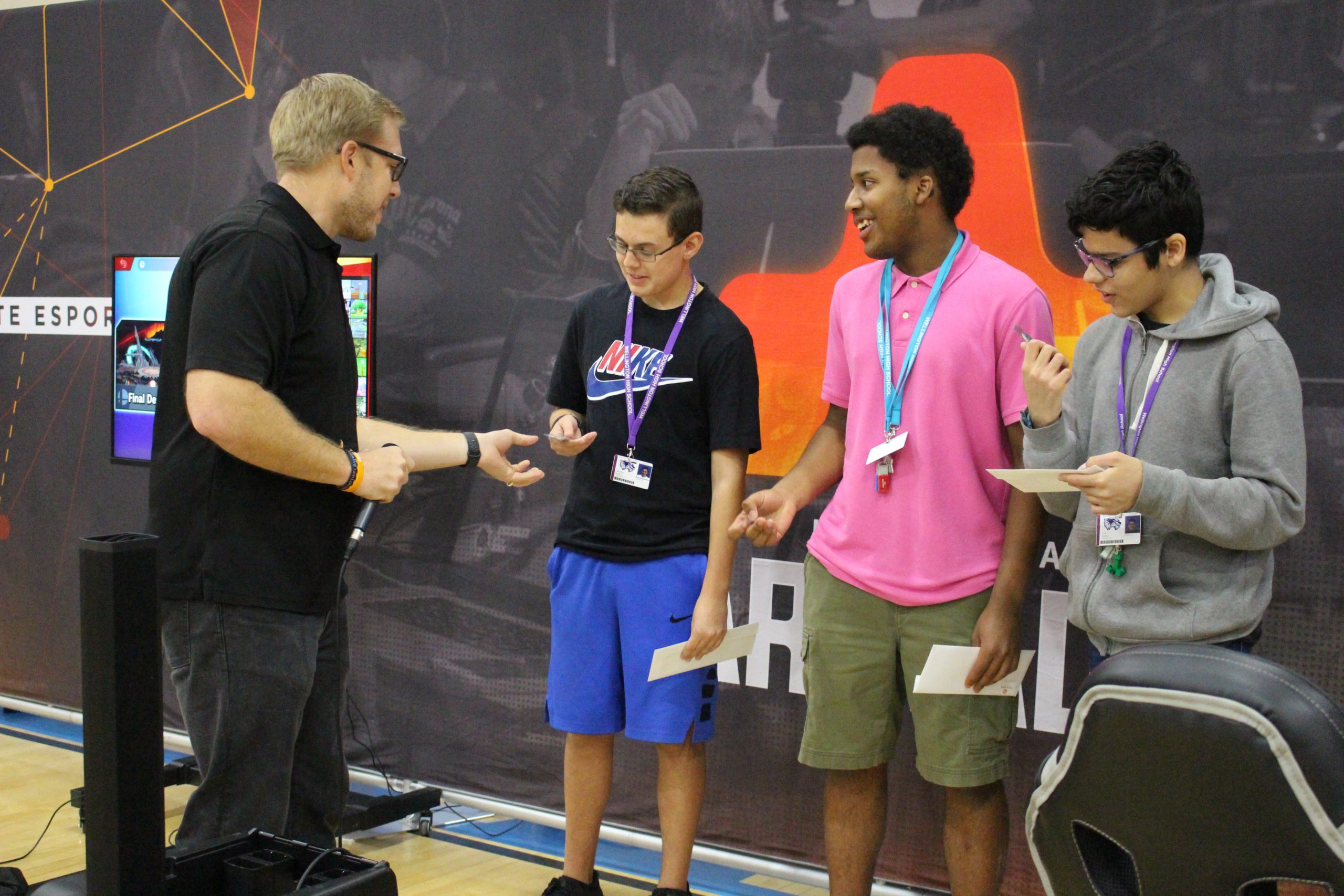
Continuing to grow
In the end, Full Sail got more than it bargained for when it signed up 294 kids to compete. The Fortress hosts 500 people, so it had to accommodate an overflow crowd on a busy weekend. That made for a bit of a logistical snarl, but it was, admittedly, a nice problem to have. It shows that there’s a lot of interest in esports in Florida.
Full Sail’s goal reached, it is looking ahead to next year’s competition and looking closely at what’s happening on the high school landscape.
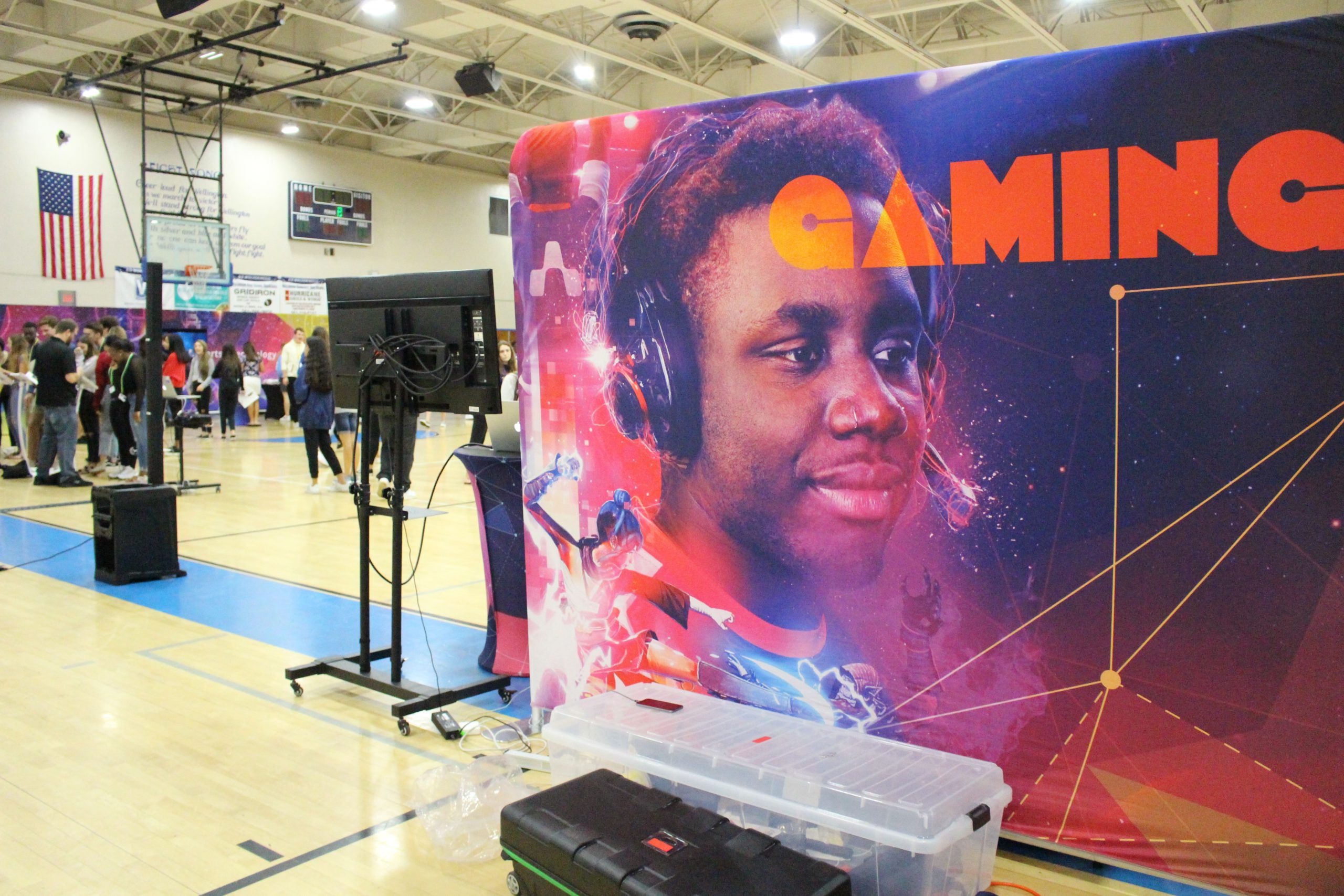 “We want to make sure we provide schools as many free resources as possible, whether it’s professional development or just connecting them with the community,” Duncan said. “A lot of the conversations that are coming up now are centered around starting an esports club. We want to kind of step them through that and give them as many resources as possible.”
“We want to make sure we provide schools as many free resources as possible, whether it’s professional development or just connecting them with the community,” Duncan said. “A lot of the conversations that are coming up now are centered around starting an esports club. We want to kind of step them through that and give them as many resources as possible.”
A good number of students probably hadn’t heard of Full Sail before the on-campus meetings. Some probably never put on a VR headset. Many likely never realized there were opportunities beyond the controllers in their hands. A trip to the Fortress probably changed that for the kids and their families.
“We want to inspire these students; we want to show them what the end game is, if they actually focus and pay attention to their classes,” Duncan said. “This is a great way to kind of get the ball rolling for them. This is the next generation that is going to create that tech for us. Who knows what’s possible from them in the future?”
Young gamers make Forbes list
Esports stars Kyle ‘Bugha’ Giersdorf and Soleil ‘Ewok’ Wheeler were among those to be named to Forbes magazine’s “30 Under 30 Games” list for 2020. Giersdorf, 17, won $3 million at the Fortnite World Cup as a high school junior. Wheeler, a 14-year-old deaf Fortnite player, has become one of the world’s most popular streamers. The two were the only teens to make the list.
Across the map …
The Compton Unified School District in California held its first-ever esports competition in Overwatch that included four high schools – Centennial, Compton, Dominguez and the all-girls squad from Compton Early College. The event was held in partnership with the Los Angeles Chargers, HighSchool,GG, and Carrot company. Esports is one of the many initiatives that is empowering a huge transformation in the South Central L.A. District, which serves 36,000 students. Graduation rates are nearing 90% as the District has put a big emphases on STEAM throughout its 36 schools. … San Diego County’s Office of Education recently hosted its first high school esports competition at a Microsoft store in Fashion Valley. Six teams faced off in the League of Legends tournament, with Westview High School in Poway winning. According to a report in the San Diego Union-Tribune, 17 K-12 schools in the county have embraced esports clubs. … In Upper Michigan, finding esports competition has been a challenge, but that hasn’t stopped Baraga High School from finding space in a classroom to launch its program. Jarrett Davidson, the school’s junior varsity basketball coach, will lead the Vikings, who are competing in Overwatch. … Gretna High School recently captured the Nebraska esports state championship in Overwatch at Midland University. … According to a report in the Albuquerque Journal, the New Mexico Activities Association is exploring hosting matches at the newly opened Nemesis 5 Esports facility in Farmington, N.M. The space has 58 custom-made PCs outfitted to run several games. This season, the NMAA says it expects 50 high schools to compete, up from 30 last season.
Academic Esports Conference Call For Speakers
![]() The deadline for submitting proposals for the Academic Esports Conference & Expo is fast approaching. Those who are influencers in education and esports who would like the opportunity to speak at next October’s show in Chicago should go to the Call for Speakers page on LRP Media Group’s website here. The deadline is Dec. 31, 2019.
The deadline for submitting proposals for the Academic Esports Conference & Expo is fast approaching. Those who are influencers in education and esports who would like the opportunity to speak at next October’s show in Chicago should go to the Call for Speakers page on LRP Media Group’s website here. The deadline is Dec. 31, 2019.
Chris Burt is the Conference Chair and Esports Editor for LRP Media Group. He can be reached at [email protected]. Also follow him on Twitter at @esportsChair.

